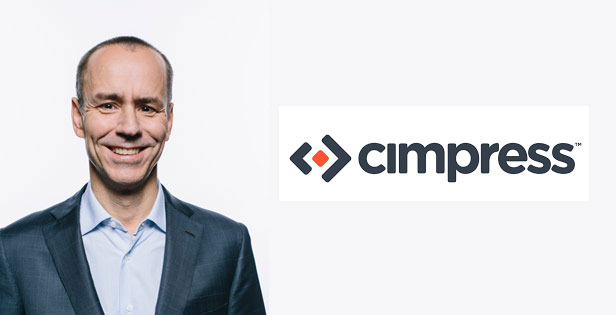January 31, 2019
Shineman Out as Vistaprint CEO; Keane Takes Role
The announcement of Trynka Shineman’s departure comes following a fiscal quarter described as “the worst in a long time.”
Robert Keane, CEO of Top 40 distributor Cimpress (asi/162149), said late Wednesday that the Netherlands-headquartered firm had a “poor” fiscal second quarter – “the worst in a long time.”
The underperformance, in Keane’s eyes, included year-over-year revenue growth of only 1% in Cimpress’ largest business division – Vistaprint, the web-based provider of printed marketing materials and promotional products. Ended Dec. 31, the quarter includes the all-important holiday period.
In the wake of the weak showing, Keane said in a letter to investors that it was the right time for Vistaprint CEO Trynka Shineman to “transition out of Cimpress.” Keane said the departure had been discussed for some time and that it’s not the result of the feeble fiscal Q2 2019 performance.
Breaking News: #Vistaprint CEO Trynka Shineman is reportedly out as CEO. Robert Keane, CEO of Vistaprint's parent company Cimpress, taking over as Interim CEO for the "foreseeable future." This following a Q2 that was "worst in a long time." @ASI_AndyCohen @ASI_MBell @VagnoniASI
— Chris Ruvo (@ChrisR_ASI) January 31, 2019
Still, while lauding Shineman for her approximately 15 years of service and crediting her with leading Vistaprint to “better levels of customer satisfaction and a greatly increased product range,” Keane also said that “over the past several years…some of Vistaprint’s key foundational basics either have not progressed rapidly enough or have deteriorated while Vistaprint focused on evolving its customer value proposition.”
Keane said he will be Vistaprint’s Interim CEO for the “foreseeable future.” Maarten Wensveen, Cimpress’ chief technology officer, is taking on the additional role of Vistaprint Interim CTO until a permanent CTO is named.
“One area I am especially focused on is looking deeply at Vistaprint's advertising to ensure we get the returns we anticipate,” said Keane. “For example, Vistaprint has been evaluating advertising by looking primarily at revenue or new customer count growth, which worked when Vistaprint had a narrow product line with a tight range of gross margins, but is not appropriate for the Vistaprint of today. We have already made some meaningful cuts in January to Vistaprint's advertising spend that we believe will have a negative near-term impact on revenue but should increase cash flow.”

Robert Keane, CEO, Cimpress
Additionally, Keane said Vistaprint plans to focus on engineering, analytical marketing and operations to address deficiencies, which include a customer experience that “suffers from bugs and glitches that impact conversion rates,” while lacking personalization and segmentation. An inadequate mobile experience is also an issue, as are insufficient analytically-driven marketing, merchandising and pricing, he said. “Our decision-making processes and tools have not kept up with the increasing complexity of the business, which has led to decisions that are inconsistent with the creation of intrinsic value,” said Keane.
Shineman joined Vistaprint in 2004 as director of marketing when the company had about 150 employees and less than $100 million in global revenue. She later became chief customer officer and global chief marketing officer, as well as president, before being named CEO in 2017. Under her leadership, Vistaprint’s full-year global fiscal 2018 revenue was $1.46 billion. “I sincerely thank Trynka for the lasting imprint she has made over the past 15 years,” Keane said.

Trynka Shineman
In its fiscal second quarter, Cimpress’ total company revenue increased 8% to about $825.56 million – a gain helped by the acquisition of BuildASign. Half-year revenue was up nearly 7% to about $1.41 billion. Still, Q2 revenue growth in fiscal 2018 was 32%, while half-year growth in 2018 was 30%, making this year’s growth rates significantly slower.
For the quarter, net income rose 125% year-over-year to more than $69 million. For the half-year, however, net income was essentially flat at $54 million. For the second quarter of 2019, net income per diluted share tallied $2.17, an increase from $0.93 in the same quarter a year ago.
While quarterly adjusted net operating profit was $115.1 million, versus $93.7 million last year, the seemingly stout performance is a bit misleading. “These headline figures mask underlying weakness since they include a reversal of $15.4 million in share-based compensation expense, a $12 million timing-related benefit of the adoption of a new accounting standard, and the first-time inclusion of BuildASign profits,” said Keane.
Vistaprint’s revenue for Q2 2019 was $434.3 million, up from $428.9 million. Half-year sales rose about 3% to $771.25 million. Cimpress also owns National Pen, a former Top 40 distributor before being acquired. National Pen’s second quarter 2019 sales were $132.95 million, a 5.4% rise over the prior year. Sales for half-year 2019 reached up 7% to $198.9 million.
Despite the gains, Keane said National Pen’s performance in fiscal 2019 hasn’t hit the mark.
“National Pen grew rapidly in FY2018 with strong financial results,” he said. “We attempted to accelerate this momentum in FY2019 by investing more deeply in prospect marketing. This has not yielded the financial returns we were looking for, and the team has accordingly reduced spending plans in the back half of the year. The business is continuing its previously planned investments in service center expansion and technology that is based on our mass customization platform.”
Executives also announced that an unspecified number of jobs will be relocated from National Pen’s Dundalk, Ireland facility to Tunisia.
In 2019, Cimpress expects high single-digit revenue growth for National Pen and either flat sales or a decrease in revenue for Vistaprint. Taking a longer view, Keane feels Cimpress on the whole will return to the days of robust growth – and he’s backing that belief up with action.
“As an indication of my strong belief in the future of Cimpress, I have stopped taking any cash compensation other than the legally required minimum salary of $455 per week,” Keane said. “In its place, I will be awarded performance share units that are worthless unless the three-year moving average of our share price achieves a compounded annual growth rate of at least 11% over a rolling six- to ten-year period.”
With estimated 2017 North American promotional product revenue of $240 million, Cimpress ranked sixth on Counselor’s latest list of the largest distributors in the industry.